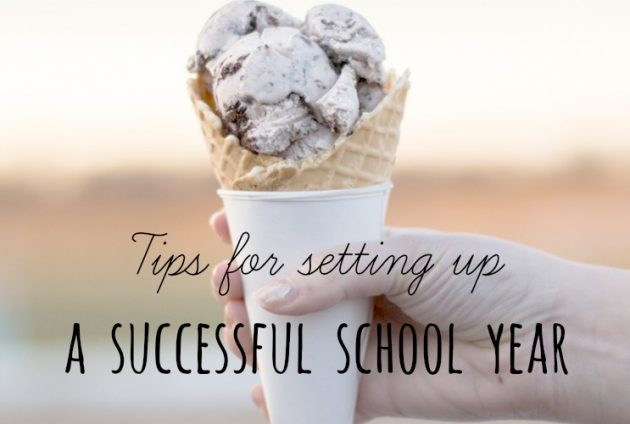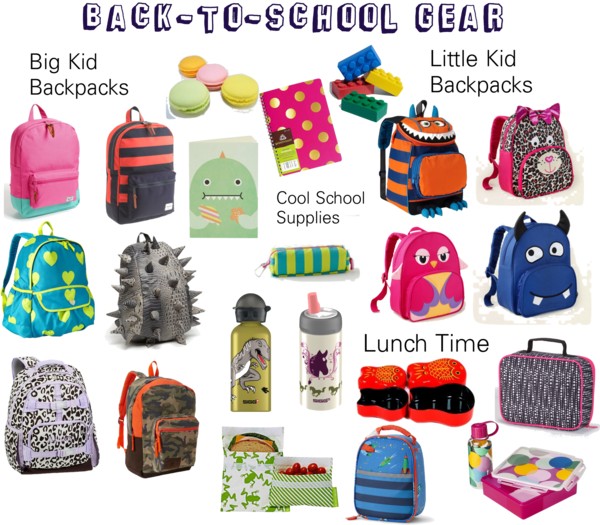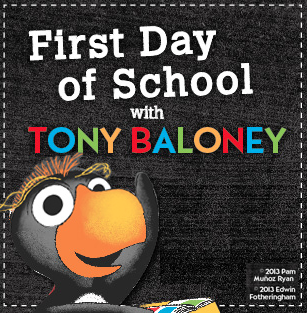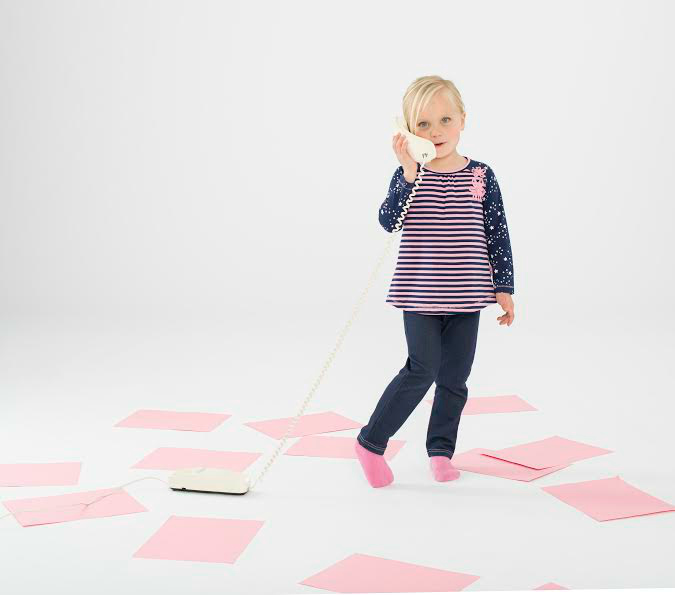When you think of summer what do you think of? Lazy, hot days? Your children playing outside for hours on end? Or picnic lunches, double-scoop ice cream cones, days at the beach and staying up late to star gaze? These all sound wonderful and hopefully you and your children have had the opportunity to do these memorable activities and much more!
However, Back to School is everywhere you turn — from a television commercial for back to school shopping to summer clothes being placed on the clearance rack while school supplies are stocked on the supermarket shelves. Some schools have already started for the year! Whether we want to face it or not, September is right around the corner. Parents can help reduce back to school frustration and tears, for us and for the kids. With a little thought and preparation you can work towards setting your children (and yourself) up for a successful school year.
Shop early
If you wait until a few days before school starts, you run the risk of not being able to purchase all the things that your children may need or want. Shopping early reduces the need to travel to five different stores just to get that “perfect” school bag! Consider shopping on-line for both amazing deals and a little convenience.
Adjust bedtime routines gradually
Changing bedtime schedules the night before school starts can backfire. Routines can take a few weeks to get established, so consider changing bedtime routines at least two weeks before school starts. It does not have to be a drastic adjustment. Try putting your children to bed a half hour earlier each night. Wake them a little earlier until you reach the desired schedule that works best for you and your children.
Plan ahead for your picky eater
You can teach your child to adapt to new meal routines before uneaten lunches return home. Introduce one new “school” food every few days. Plan meals and snacks with your children, so they feel like they have a say in the new foods. Make a game of it and have them help you prepare their lunches the night before school, and place it in that lunch bag you remembered to buy early. The next day you can eat together at the kitchen table or go to the park for a picnic.
Your child’s teacher may have a system to help children differentiate between lunch food and snack foods. In the event that your child’s teacher does not have a system in place, consider implementing a visual system to help teach this skill. This may include numbering each package, so they know what to eat first (snack), second (lunch) and last (snack). If your child can read, consider placing a written label on each package (snacks versus lunch) or designate containers for each category of food.
Help foster independence in your kids
As parents, our lives become so busy we don’t even realize how much we do for our little ones. We especially overlook simple things like opening that cookie package or tying their shoe laces. Help build your child’s self-help skills and confidence by practicing skills like zipping their jacket. Think of how independent they will need to be in school and all the skills they will be developing.
Work on transitions
Consider a day of school and make a list of the transition times your child may need support. Start to practice those skills. Examples include dressing skills, placing lunch bags in back-packs, opening and closing containers and food packages, toileting routine, washing their hands, filling up their water bottle, and putting garbage in the trash cans. Before you know it, your little one will be proud to show off what they can accomplish on their own!
Pay attention to social skills, too
Is it the first time that your child will consistently be in a setting with a lot of children? Worried that they won’t make any friends or that they may have trouble with some of their social skills (e.g., sharing)? Setting up structured play dates with one or more children at a time is a great way to ease your child’s sense of comfort and work on establishing pro-social behaviors.
You may think that leaving the kids alone to play is best, but children often need adult guidance and support to work on these skills. Before the children arrive, review with your child the guidelines and plan and set out various games and activities that they can play. Be sure to set a positive tone, then fade back and only intervene when you start to see a potential problem.
Reintroduce strong academic habits
You probably prided yourself in getting your children to do their homework and read for at least 20 minutes each night during those school months. But, as summer rolls around, we tend to relax on some of those school-readiness practises. Now is a great time to start to re-introduce those great habits. Start by reducing screen time and increasing nightly homework or reading time. No time to do it every night? No problem, even three nights a week is a great start to getting your children back into this routine.
Familiarize your kids with a new school
Is your child worried about attending a new school? Not to worry, many schools are open one to two weeks before school officially begins so you can always arrange a school visit. You may not be able to find out who your child’s teacher will be, but touring the school is a great opportunity to answer any questions you or your child may have while becoming familiar with the new environment.
Get kids ready for a bus ride
For some children, the idea of taking a bus to school can be a real adventure, while for others it is something they are dreading. To help prepare your child in advance, try reading a book or a social script about taking the bus. Example:
- When school starts, I will be taking a bus to school.
- I will wait for the bus at the end of my street with my mom.
- I can kiss and hug my mom good-bye before I get on the bus.
- When I get on the bus, the bus driver might smile and say “Hello.”
- Other kids will also be on the bus, I might even know some of them.
- On the bus, I can listen to music, read a book or talk with other kids.
- It is important to do something quiet and safe while I am on the bus.
- It is the bus driver’s job to take us to school.
- I am happy I arrived at my school.
- Taking the bus can be fun!
Listen and discuss your child’s concerns
Having regular conversations with your children is always critical to their development. Before school starts, you should take time to listen to your kids. Be aware of the concerns and anxieties that may occur as the transition to school approaches. You can help to alleviate some of their questions and concerns by writing them down in a “What if?” document. Together, determine things your child can do to help themselves.
What if…I do not have any friends?
- I can…join clubs or activities to meet new friends.
What if…I get lost?
- I can…find a teacher to help me or visit my new school with my dad in August
Remember with a little planning and preparation you can help make the first few weeks of school easier. Don’t forget to also point out one of the positive aspects of starting back to school. Winter break is right around the corner.
Janet Arnold and Francine McLeod of Finding Solutions contributed this piece. Read more from them on www.findingsolutions.ca or get a copy of their latest book, “How to Explain a Diagnosis to a child “ here.
Reference:
http://kidshealth.org/en/parents/back-school.html








